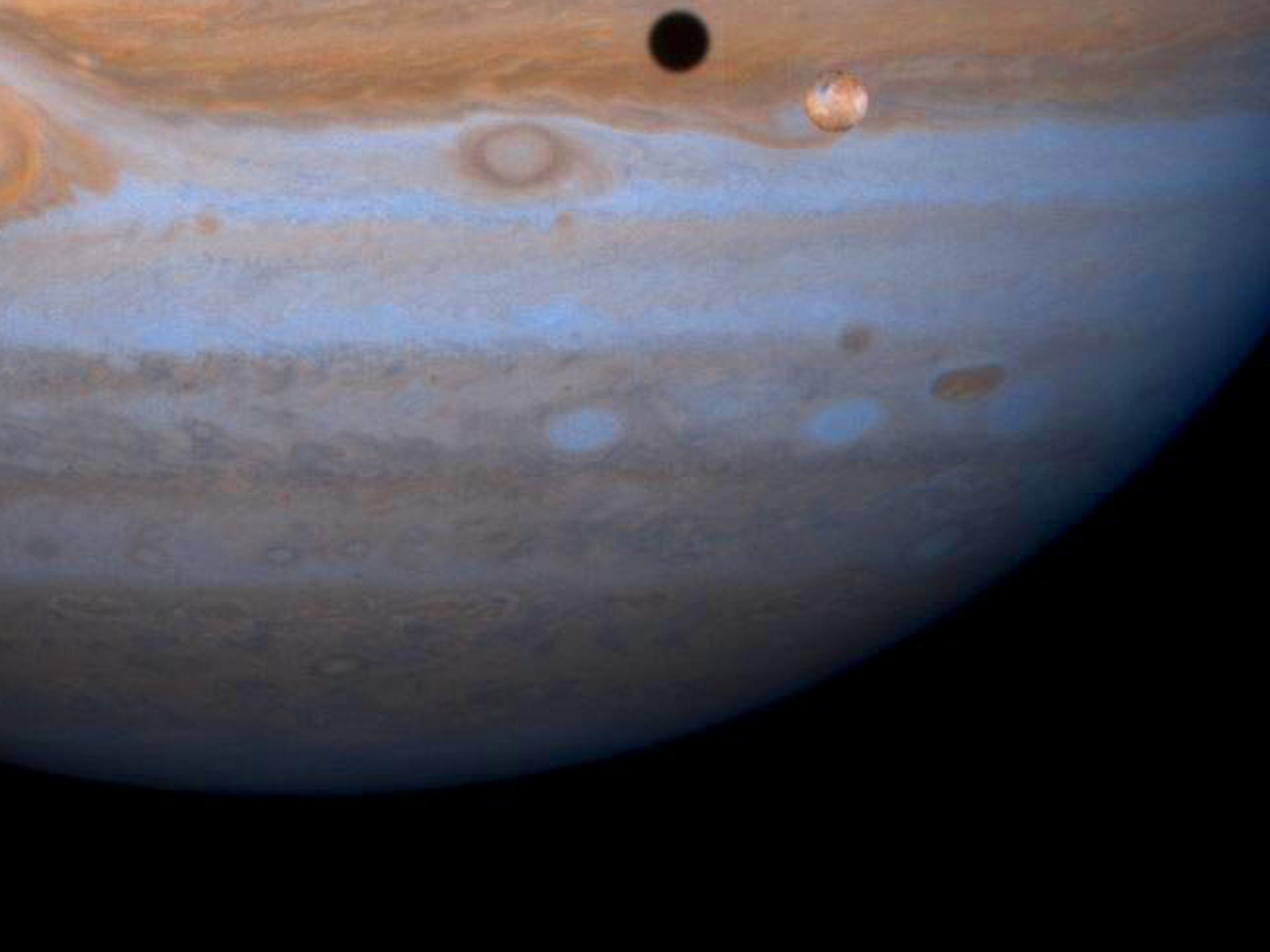Nasa announcement about Jupiter’s moon Europa won’t be to say that the moon has aliens, agency clarifies
The company had announced that the Hubble Space Telescope had captured ‘surprising evidence of activity’ on Europa – which made many think that aliens might have been found

Your support helps us to tell the story
From reproductive rights to climate change to Big Tech, The Independent is on the ground when the story is developing. Whether it's investigating the financials of Elon Musk's pro-Trump PAC or producing our latest documentary, 'The A Word', which shines a light on the American women fighting for reproductive rights, we know how important it is to parse out the facts from the messaging.
At such a critical moment in US history, we need reporters on the ground. Your donation allows us to keep sending journalists to speak to both sides of the story.
The Independent is trusted by Americans across the entire political spectrum. And unlike many other quality news outlets, we choose not to lock Americans out of our reporting and analysis with paywalls. We believe quality journalism should be available to everyone, paid for by those who can afford it.
Your support makes all the difference.Nasa has poured cold, salty water on excitement that it could be about to announce it had found aliens.
The agency has looked to calm speculation on social media and elsewhere that a press conference is is holding on Monday will be about the discovery of life on Europa, one of Jupiter’s moons.
Excitement kicked off when Nasa said that it would be holding a press conference about the fact that the Hubble Space Telescope had found “surprising evidence of activity” on Europa. Experts have suggested that Europa could be the best place in the solar system to find life – and so speculation immediately jumped to the fact that the activity was aliens.
That excitement flew around social media and eventually made it into the papers, some of which questioned whether Nasa was about to announce that it had found life on the moon.
Finally the space agency posted a tweet of its own that will come as a disappointment for anyone hoping to meet Europa’s aliens. It read: "Monday, we'll announce new findings from Jupiter's moon Europa. Spoiler alert: NOT aliens."
The discovery is more likely to relate to water vapour "plumes" that Hubble spotted high above the moon in 2012, but which have not been seen again.
If the plumes are shown to be linked to the moon's sub-surface ocean, it would make the job of investigating the habitable potential of Europa much easier. Instead of having to drill through the moon's thick, icy shell, scientists could analyse the chemical content of the plumes.
The 1,900-mile-wide moon is thought to hold two to three times as much water as all the Earth's oceans.
Europa's ocean is believed to be salty, and warmed by powerful tidal forces generated by Jupiter's gravity so that it remains unfrozen.
Additional reporting by agencies
Join our commenting forum
Join thought-provoking conversations, follow other Independent readers and see their replies
Comments